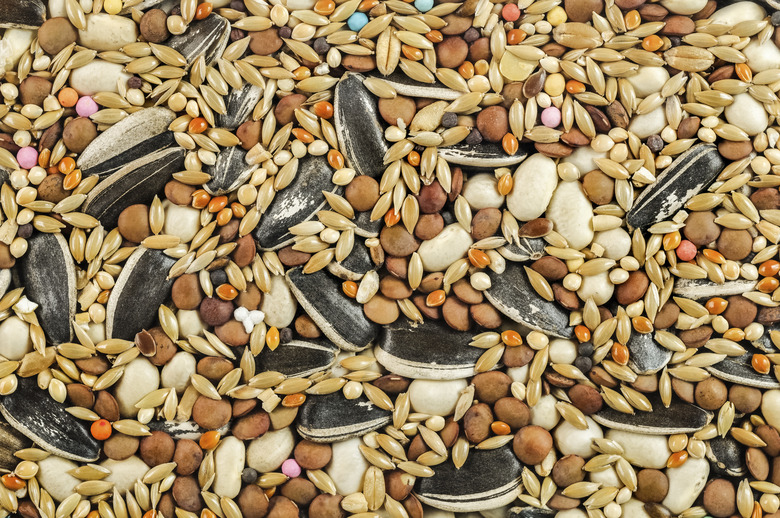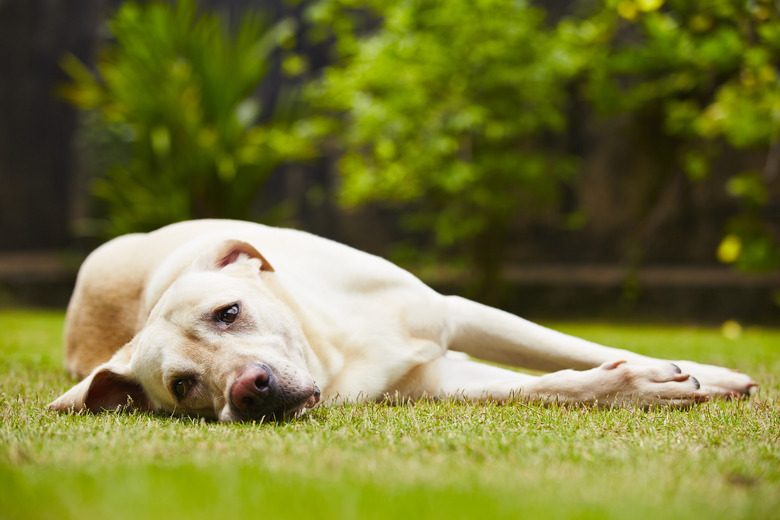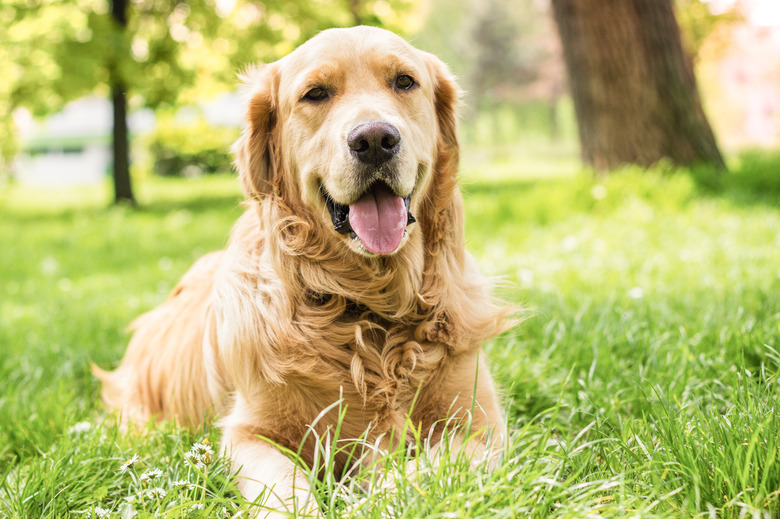Can Dogs Eat Bird Seed?
Many dogs will find bird seed to be a tasty treat, whether they find leftovers that the bird dropped from his cage or from the feeder in your backyard. A small amount of bird seed is unlikely to cause serious consequences, however, if your dog ate bird seed, it is best to contact your veterinarian to determine what treatment may be necessary.
Dangers of bird seed
Dangers of bird seed
The ingredients in most bird seed are not poisonous to dogs, although the seed often digests much slower in your dog's system. Some types of bird seed may contain ingredients that are poisonous to dogs, such as raisins, which may cause kidney failure. Check the product label and if it contains an ingredient that is toxic to dogs, be sure to contact your veterinarian or the ASPCA's Animal Poison Control Center.
A small amount is unlikely to cause problems, but if your dog eats too much, he may experience an upset stomach. In some cases, the bird seed can cause a blockage in your dog's digestive tract and cause a very serious condition called bloat.
Symptoms of bloat include a visibly enlarged stomach that may be painful when you touch it, salivation, and retching. Bloat can be fatal and requires an emergency visit to the veterinarian and surgical treatment.
Disease risk from bird seed
Disease risk from bird seed
Seeds that fall to the ground or get wet may start to grow molds that produce aflatoxin. If the bird seed your dog eats has aflatoxin, this can cause serious illness and even death. Symptoms of aflatoxin poisoning include vomiting, diarrhea, loss of appetite, and jaundice. Some dogs won't show any initial symptoms but will still suffer liver damage that can cause problems down the road.
If your dog ate bird seed from the ground, he may have also likely consumed bird feces. The bird feces can spread diseases such as salmonella to your dog. Many dogs will not show symptoms of salmonella, but may still spread it to the humans in your family. Puppies and dogs with other health conditions are more likely to get sick from the infection. Symptoms may include vomiting, diarrhea, loss of appetite, lack of energy, and fever.
Keep your dog safe
Keep your dog safe
If your dog ate bird seed, contact your veterinarian right away, especially if the bird seed was old or you don't know how much your dog ate. Providing treatment early can help prevent more serious problems later on.
Take steps to keep your dog safe while still enjoying the birds drawn by the feeder. Make sure to select a bird seed that is free of raisins and other ingredients that are poisonous to your dog. Change out the seed regularly, especially if it gets wet, to reduce the risk of mold. Be sure to clean and sterilize the feeder when you change out the bird seed.
Select a bird feeder that has a tray to catch dropped bird seed. Clean the ground around the feeder regularly to pick up any seed that the tray didn't catch. If possible, block your dog from going into the area where the bird feeder is and teach him a command such as "leave it." This is useful not only for bird seed, but to keep him away from any other dangerous or poisonous things he may encounter.
Always check with your veterinarian before changing your pet's diet, medication, or physical activity routines. This information is not a substitute for a vet's opinion.
References
- American Kennel Club: Bloat (or GDV) in Dogs — What It Is and How it's Treated
- American Kennel Club: Birdseed Is for the Birds, Contrary to What Your Dog May Think
- ASPCA: People Foods to Avoid Feeding Your Pets
- U.S. Food & Drug Administration: FDA Alert: Certain Lots of Sportmix Pet Food Recalled for Potentially Fatal Levels of Aflatoxin
- U.S. Food & Drug Administration: Get the Facts about Salmonella
- ASPCA: Animal Poison Control


